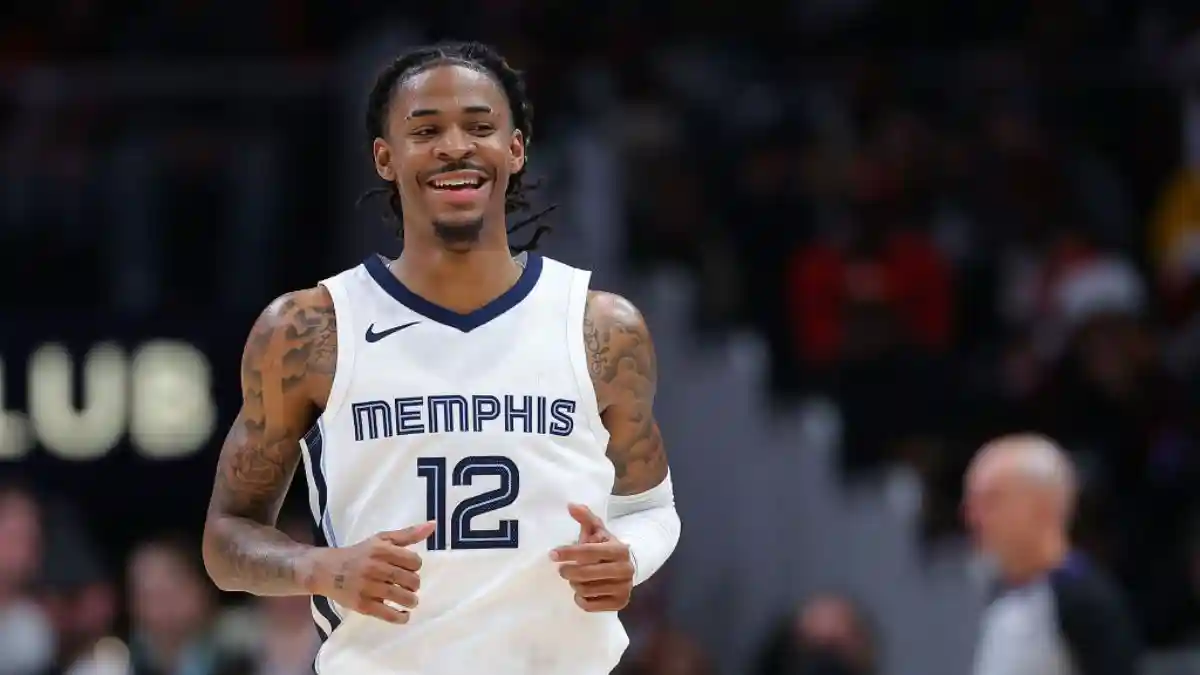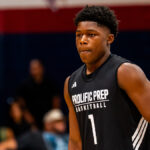The tension surrounding Ja Morant and the Memphis Grizzlies has reached a boiling point. What began as a simple postgame exchange between player and coach has evolved into a defining moment for a franchise already mired in turmoil.

Morant’s one-game suspension for “conduct detrimental to the team” followed a heated exchange with first-year head coach Tuomas Iisalo after a loss to the Los Angeles Lakers.
According to multiple reports, Iisalo publicly challenged Morant’s leadership and effort, prompting a sharp response that the organization deemed dismissive and inappropriate.
The suspension marked another low point in a pattern of off-court and interpersonal issues that have come to define the relationship between Memphis’s star guard and the organization once built entirely around him.
“No Joy” and No Easy Answers
When Morant returned from suspension, his demeanor was as telling as his words. Asked if he still feels the same joy for basketball, he offered a short, chilling reply: “No.”
Pressed further on how he might regain it, he said simply: “We’ll see.”
The comments, coupled with a distant and deflective tone in his media availability, reflected the disconnect now consuming Memphis’s locker room. When asked if the suspension issue had been resolved, Morant replied pointedly,
“Yeah, they told y’all that right? Obviously, they can’t go and tell y’all something I didn’t say.”
When pressed again about his relationship with the franchise, Morant was equally guarded:
“If I didn’t have a good relationship with them, I wouldn’t talk to them at all.”
His passive-aggressive tone and terse responses made clear that the relationship remains strained despite attempts to manage the optics.
Iisalo’s Push for Accountability
Iisalo, brought in to reshape Memphis’s culture, has made accountability his coaching trademark — a philosophy that has clashed with Morant’s temperament.
Speaking on a European basketball podcast before the incident, Iisalo discussed his direct approach: “How can he change if I don’t ever bring it up? Listen, you’re holding us back. You can choose to behave in this way, and this means that you’re just not very competitive. Because behaving in another way would allow us to win.”
The exchange with Morant was reportedly one of several moments this season in which Iisalo challenged the team’s effort publicly. His decision to confront Morant in front of teammates was intended as a leadership wake-up call. Instead, it deepened the divide.
When asked later about the suspension, Iisalo called it “an internal matter,” refusing to escalate the conflict publicly.
On-Court Struggles and Signs of Frustration
The Grizzlies’ problems extend beyond the locker room. Morant is averaging 20.0 points, 7.3 assists, and 3.8 rebounds through eight games — respectable numbers on paper, but his efficiency has plummeted to career lows. His body language has mirrored the stats: slumped shoulders, frustrated glances toward the bench, and minimal engagement with teammates during huddles.
During Wednesday’s 124–109 loss to the Houston Rockets, Morant scored 17 points on 6-of-19 shooting, including 1-of-7 from deep. Memphis trailed by double digits for most of the night, appearing listless and disconnected on both ends.
The Grizzlies’ offseason overhaul set the stage for this uneasy dynamic. Desmond Bane was traded to the Orlando Magic for a package of four first-round picks, a move that signaled long-term planning but stripped away one of Morant’s closest teammates.
The front office doubled down on Jaren Jackson Jr., extending him for four years and $205 million, while deferring any new deal for Morant. That decision has been widely interpreted as a sign of uncertainty about his long-term future in Memphis.
Meanwhile, injuries to Zach Edey, Brandon Clarke, and Jackson have left the roster thin, and the team has dropped four straight games heading into Friday’s matchup against the Dallas Mavericks.
The Bigger Picture
Morant’s struggles have sparked a broader conversation about leadership and identity. Once celebrated for his electrifying athleticism and charisma, the 26-year-old guard now finds himself at the center of organizational fatigue.
Various outlets have suggested that Memphis is not actively shopping Morant but is “monitoring the situation.” The combination of his on-court frustration, public detachment, and off-court history has inevitably fueled trade speculation.
Yet moving on from Morant would be seismic. The Grizzlies are a small-market franchise with a deep financial and emotional investment in him, and their new downtown arena lease makes any immediate breakup difficult.
For now, both sides appear committed to a tense coexistence — one built more on necessity than trust.
As Morant himself put it, the question of what comes next remains unanswered: “We’ll see.”
Editor's Pick
 Preseason 2025-26 FAB 50: Top 15 Teams!
Preseason 2025-26 FAB 50: Top 15 Teams!